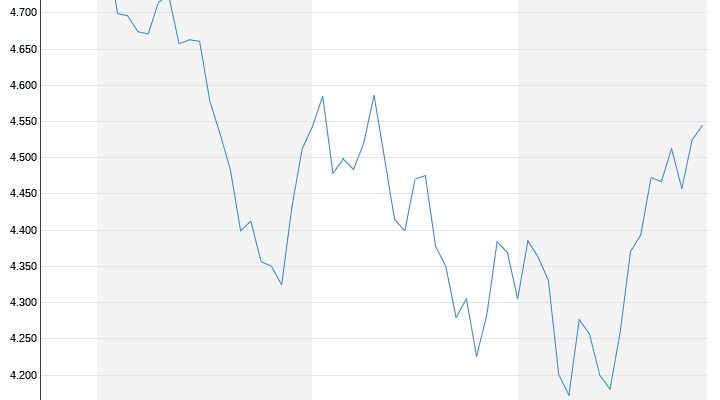War, oil, inflation, interest rates
Wall Street commutes without ambition
03/25/2022, 21:34
At the end of the week, too, the oil price and interest rate hikes are the main topics on the US stock exchanges. For a change, a warning voice came from the field of Fed governors. After brisk weekly trading, the indices are now staying close to the previous day.
After volatile trading, Wall Street ended the week on a mixed note. The indices fluctuated in very narrow ranges around the closing levels of the previous day. Above all, the ongoing war in Ukraine and the prospect of more aggressive interest rate hikes by the US Federal Reserve continued to be in focus. Oil prices, which had already risen sharply over the course of the week, increased again and thus further increased concerns about inflation. With the weekend approaching, risks were also minimized.
“Investors are adjusting their forecasts based on what interest rates need to be and how fast they need to rise to ease inflationary pressures,” said James Solloway, chief market strategist and senior portfolio manager at SEI Investments.
the Dow Jones Index improved by 0.4 percent to 34,861 points. For the broader S&P 500 went up 0.5 percent. The more tech-heavy Nasdaq Composite lost 0.2 percent.
The prospects of a peaceful solution to the Ukraine war continue to seem rather slim. The negotiations between Kyiv and Moscow, which have been going on for some time, are not bringing any progress. Western countries have also threatened further tightening of sanctions against Russia. The situation thus remains tense.
After there were increasing voices from the ranks of the US Federal Reserve in favor of more aggressive interest rate hikes, the President of the Federal Reserve Bank of New York, John Williams, called for prudent action. The Fed should consider how this affects other nations. The coronavirus pandemic, inflation and the Ukraine war are “global issues with domestic political implications, and when we address them to fulfill our own mandates, we also affect the economies of other countries in the region,” he said.
the US consumer sentiment weakened in March. Economists, on the other hand, had expected confirmation of the first publication. The main concern was inflation. Consumers’ 12-month inflation expectations rose to 5.4 from 4.9 percent the previous month – the highest level since November 1981.
Rich plus on a weekly basis for oil prices
the oil prices remained volatile. After initially falling, the prices for Brent and WTI rose again slightly. It was triggered by reports of a rebel attack on an oil refinery in Saudi Arabia. This again increased concerns about the global oil supply. On a weekly basis, oil prices rose by around twelve percent.
the dollar showed little change. Participants expect that the greenback will continue to benefit from its status as a safe haven currency given the existing geopolitical risks. The euro bounced back to $1.0984 from daily highs of $1.1038. In retail, reference was made to the very weak Ifo business climate index.
Yields on the bond market rose again significantly after having risen sharply the day before. The main driver of returns was the prospect of a more aggressive interest rate course by the US Federal Reserve in view of the high inflation.
The gold price showed slight losses, but recorded a plus on a weekly basis. Here, too, the Ukraine war and the prospect of more aggressive interest rate hikes continued to be the dominant issues. Even the sharply rising yields on the bond market would not have prevented a weekly plus.
Among the individual values, the papers listed in the USA fell by noo by 9.4 percent after the fourth-quarter report from the Chinese manufacturer of electric cars was not convincing in all respects.
Apple (0.4 percent) presented its arguments in detail for the first time in the well-noticed legal dispute with the “Fortnite” manufacturer Epic Games before an appellate court. The iPhone maker asked that a judge’s decision that the company violated California’s unfair competition law should be overturned.
Johnson&Johnson (1.0 percent) and Legend Biotech (minus 5.1 percent) received the recommendation from the European Medicines Agency’s Committee for Medicinal Products for Human Use to approve the Carvykti cell-based therapy for certain patients with blood cancer.
